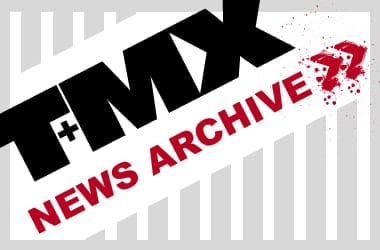MX des Nothing
By TMX Archives on 17th Mar 03

THE MOTOCROSS des Nothing or the Motocross Disaster or, maybe, the Motocross Debacle. Try some on your own - it's fun! The 2002 Motocross des Nations, scheduled to take place here in America in September, was a botched, poorly-organised event that was doomed to fail before it ever had a chance.
Many people in the industry saw it coming but nobody could have predicted the string of events that would eventually lead to the event's demise.
The des Nations had made only one previous appearance in the States - back in '87 - when the legendary team of Jeff Ward, Rick Johnson and Bob Hannah took the win at New York's Unadilla Valley Sports Center. Rumours about a return had popped up from time to time since then but it was a complete shock when we learned, in March, that it would actually happen this year. But shock soon turned to confusion and concern. The FIM and Dorna had given the green light to promoter Malcolm McCassey and his Southern California track, Competition Park. On the surface no problems there. But upon closer inspection the cracks in the foundation begin to show.
First of all, McCassey was and is a relatively inexperienced promoter with a less-than-stellar reputation in the motocross industry. He had never promoted a national-level - let alone an international - race, nor had his partners (most visibly a man named Jim Facciutto). In addition, his track did not hold an AMA (American Motorcyclist Association) sanction, which seemed strange for an FIM-sanctioned race like the MXdN.
A sanction may have been the least of Competition Park's problems, however, since the track that would be hosting the race had not even been built. McCassey and Facciutto had somehow convinced Dorna and the FIM that they could build a new track, complete with a paved pit area, concessions, grandstands and a host of other amenities in the six remaining months leading up to the event. To say that the European promoters made a leap of faith is beyond understatement.
Why Competition Park instead of a more suitable (or existing) track like Unadilla, Budds Creek or Glen Helen? The main reason seems to be money. Dorna requires that the promoters of the des Nations pay an up-front licensing fee of $650,000 - an amount that no outdoor national promoter could reasonably be expected to produce, just for the rights to host the event. That comes before any sort of rider payouts, location upgrades, insurance fees and any of the countless other expenses a race promoter must deal with. None of the larger, more popular tracks in the country were willing/able to come up with the money - so how could a California practice track?
But let's just accept, for now, that the money situation was fine and that the event was a go. As soon as they inked the deal, McCassey and Facciutto set about building their new track. But progress was slow and many people began to wonder if the venue would even be finished by the late-September deadline.
Enter the landowners. That's right, McCassey didn't own the land - it was the property of the Soboba Band of Mission Indians. The track, along with an Indian-run casino, was located on the Soboba reservation. But the promoters had apparently received permission from the tribe to hold the race on Soboba land and construction began accordingly.